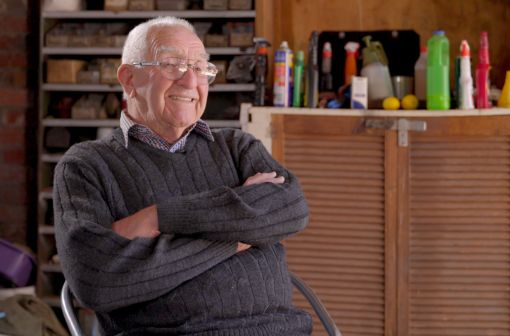“Ideally, you’ll receive consistent care from a small, regular team so that, over time, you can build up meaningful relationships.”—Trish Oxford, General Manager of Business Development & Community, Indigenous Services at Australian Unity.
Key points
- It’s a smart idea to start thinking about the help you might need as you get older, before you start to slow down.
- Home Care Packages offer you a more co-ordinated and flexible approach when you require multiple service types.
- The services can include social support, and building the right team around you can help with your quality of life and general wellbeing.
You’ll often hear people say that staying independent in their own homes is an important goal for when they get older.
But, sometimes, that can mean asking for help and getting the assistance you need. From getting help with chores like cleaning and grocery shopping, or assistance with personal and medical care, the services available today encompass your social and emotional wellbeing as well as your practical needs.
In this article, we discuss the various services available and how to identify the areas of support that can best help you to enjoy your life at home.

The different kinds of assistance
Broadly speaking, government-subsidised home care comes from two key funding types—the Commonwealth Home Support Programme (CHSP) and Home Care Packages (HCP).
Both draw on services from three basic categories:
- Help with staying well and independent: This includes personal care, occupational therapy and help with food preparation.
- Help with staying safe at home: This could include installing access ramps and rails, providing a walking frame or shower chair, and removing hazards from your garden.
- Help with staying connected to your community: Including providing community transport, organising social activities and arranging outings.
CHSP provides support with everyday tasks, so it suits people who need just a little help in order to continue living independently. HCPs, on the other hand, provide increasingly complex and more intensive care depending on your level of need.
Specialised care is also available. An example of this specialised care is Australian Unity’s Aboriginal Home Care service which provides support and assistance to around 2,500 Aboriginal and Torres Strait Islander people across New South Wales in a culturally appropriate way.
Trish Oxford, General Manager of Business Development & Community, Indigenous Services at Australian Unity, stresses that having a deep understanding of cultural protocols and sensitivities, and an intimate knowledge of how Indigenous communities work, is paramount to delivering successful support services and building solid relationships.
“All of our staff are part of the community where they work so they also know all about social and community events,” says Trish. In fact, around 85 percent of Australian Unity’s Aboriginal Home Care employees are of Indigenous descent.
Finding the right services
It’s a smart idea to start thinking about the help you might need as you get older, before you start to slow down. It’s also good to have the conversation with your family so they can be sure they’re supporting you in the ways you want.
“A good starting place is listing the things that matter most to you—the things that bring joy and meaning to your life,” says Danielle Biviano, Australian Unity’s General Manager for Southern Region Home Care Services. “You can then plan your care around maintaining your overall wellbeing rather than just getting by.”
Here are a few reliable places to find information that will help you in your research.
- My Aged Care: A government website with excellent information about the types of care available, the application process and much more.
- Council on the Ageing: This organisation’s role is to promote, improve and protect the wellbeing of older people in Australia.
- Local services: Your local community health service, GP clinic or hospital may have useful advice.
- Older Persons Advocacy Network: This service allows you to request an impartial advocate to help you make informed decisions about your care.
Getting help with everyday tasks
When you’re assessed for CHSP you’ll be approved for one or more types of individual service. However, there’s some flexibility around the help you can receive during each visit from a care worker.
“For example, if you’re receiving domestic assistance, you might require support with different tasks from week to week depending on what you have been able to get done yourself. You might request your care worker to clean the bathroom one week and help you to change the linen on the bed the following week,” Danielle says. Importantly, “Each visit should also provide an opportunity for a chat to help avoid social isolation.”
Danielle goes on to explain that HCPs offer you a more co-ordinated and flexible approach when you require multiple service types. “Rather than being approved for individual service types, a HCP provides you with a budget of funds that you can use to access a wide range of services, and even the purchase of consumables and equipment,” she says. “A good home care provider will work with you to achieve your goals and maximise the funds in your budget.”
Typical services for both CHSP and HCP include grocery shopping, house cleaning, garden maintenance, transport, and personal care, such as help with showering, dressing or hair care.
Finding the right team
Even the most practical services can include social support, and building the right team around you can help with your quality of life and general wellbeing.
“Ideally, you’ll receive consistent care from a small, regular team so that, over time, you can build up meaningful relationships,” Trish says. “The first three months of care are a critical period in terms of getting to know each other. Regular carers will become familiar with your individual likes and dislikes, what’s most important to you, and how you like things to be done.”

Making your package go further
A good provider will know about any extra services that may be available to help your package go further, such as specialised dementia care and supplementary oxygen. Australian Unity’s Aboriginal Home Care team is also in touch with other service providers for Aboriginal people and can often make a referral to organise free or very low-cost services.
“We’re very familiar with the government’s Closing the Gap program for example, which is designed to reduce disadvantage among Aboriginal and Torres Strait Islander people,” Trish says. “Through this, we can help our customers to access low-cost allied health services such as psychology services and chronic disease management.”
Don’t be afraid to ask for what you need
After a lifetime of taking care of themselves and their family, some older Australians find it hard to ask for help.
“It’s important to remember that a little support can help you to stay independent in your own home for longer and enjoy much better quality of life,” Trish says. “Our aim is to help you do the things you used to enjoy and would like to do again, and to find new ways of living a socially connected and fulfilling life.”
Disclaimer: Information provided in this article is of a general nature. Australian Unity accepts no responsibility for the accuracy of any of the opinions, advice, representations or information contained in this publication. Readers should rely on their own advice and enquiries in making decisions affecting their own health, wellbeing or interest.



